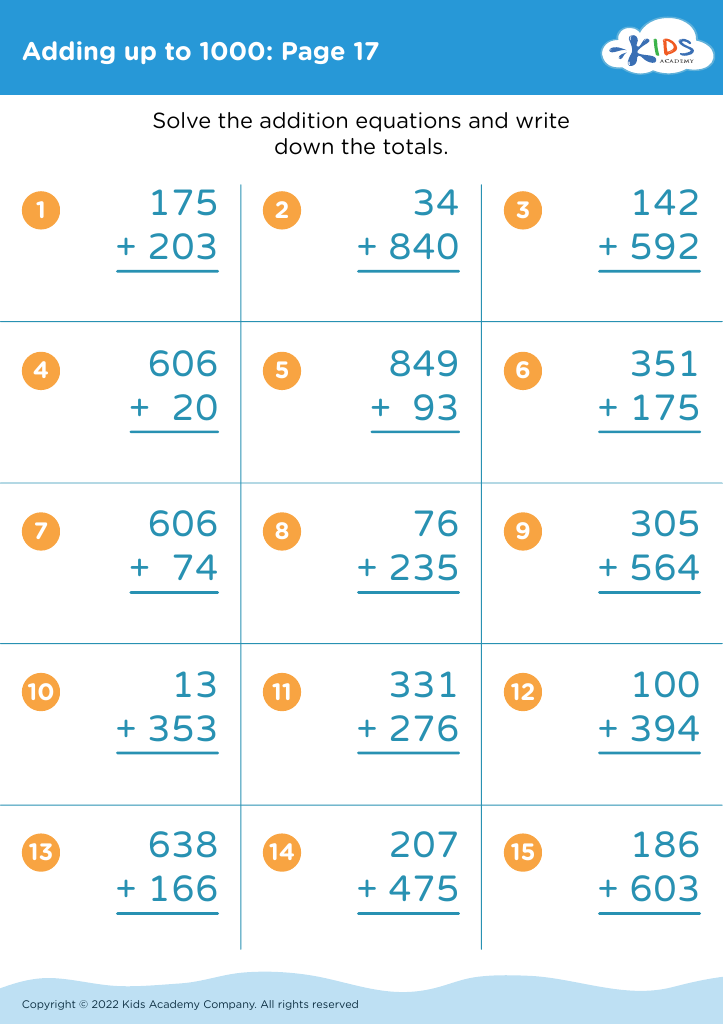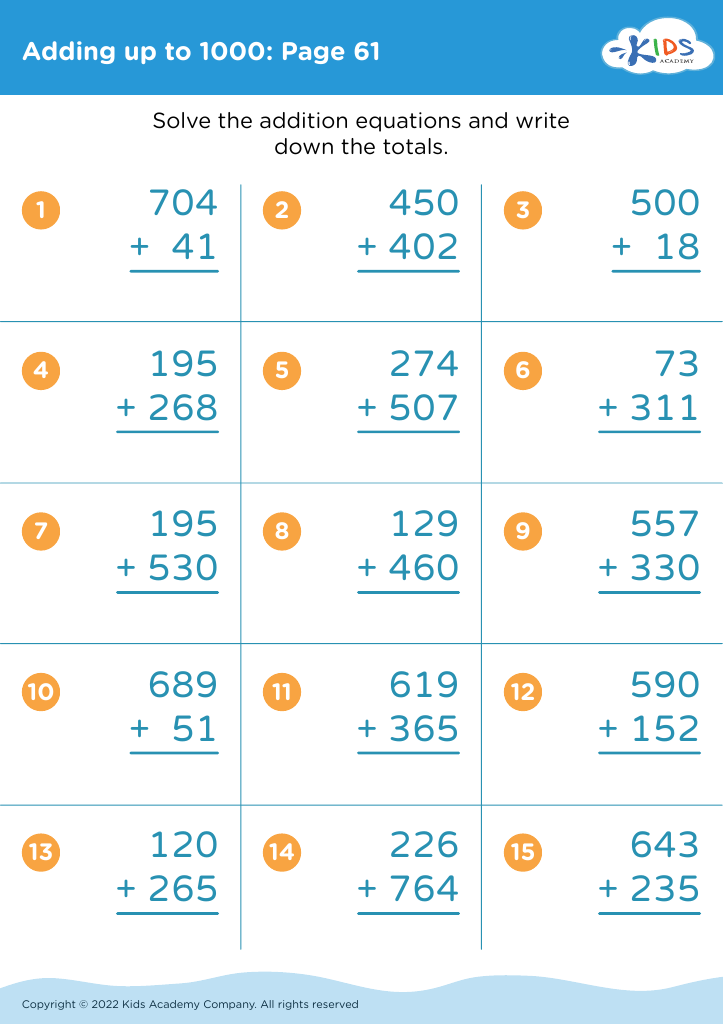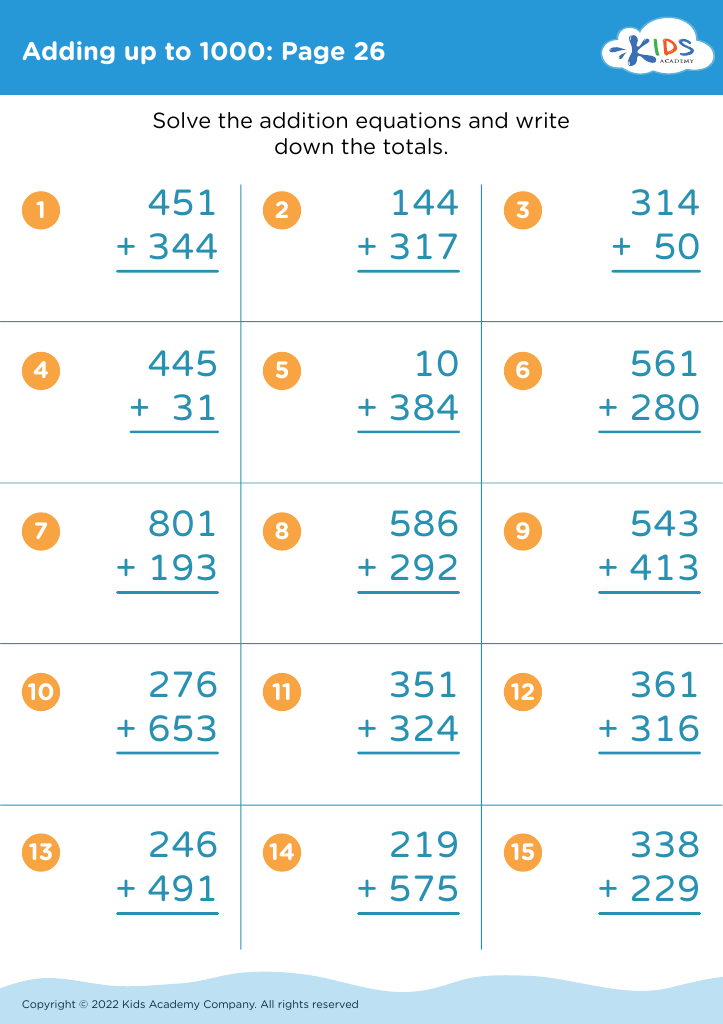Basic Math Skills Adding up to 1000 Misc Worksheets for Ages 6-7
3 filtered results
-
From - To
Dive into engaging and effective basic math skills worksheets designed for children ages 6-7! Our “Adding up to 1000” collection features a variety of fun and interactive printables that reinforce essential math concepts. These worksheets are perfect for helping young learners practice addition, build confidence, and enhance problem-solving skills. With colorful designs and appealing formats, children will enjoy learning as they work to reach their math potential. These resources are aligned with educational standards, making them perfect for home or classroom use. Equip your child with the foundational math skills they need to succeed! Start exploring today!
Basic math skills, particularly the ability to add up to 1000, are crucial for children aged 6-7 as they lay the foundation for future learning and everyday problem-solving. At this age, children are developing critical thinking abilities, and understanding how to work with numbers up to 1000 fosters confidence and promotes positive attitudes towards math.
Competence in addition not only aids in their academic journey, supporting subjects like science and economics but also equips them with essential life skills. Parents and teachers should prioritize these skills because they help children perform routine tasks, such as shopping or budgeting, later in life. Mastering basic math enables students to grasp more complex concepts in the future, such as subtraction, multiplication, and division, enhancing their overall mathematical literacy.
Additionally, frequent engagement with math at this developmental stage can stimulate cognitive growth and improve attention and memory. Teachers and parents who focus on nurturing these skills can cultivate a sense of achievement in children, motivating them to tackle challenges with enthusiasm. Thus, prioritizing basic math skills involves fostering not only academic success but also a lifelong affinity for learning.













